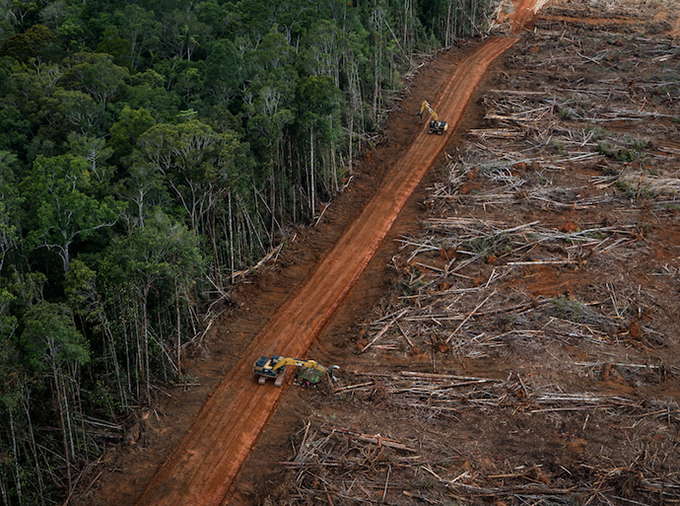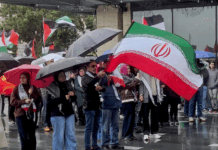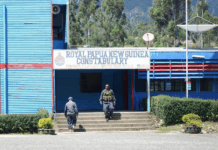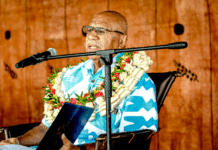
By Febriana Firdaus in Jakarta
As it seeks to diversify its sources of fuel, India is looking to get in on the ground floor of coal mining in previously unexploited deposits in Indonesian-ruled Papua.
In exchange for technical support and financing for geological surveys, officials say India is pushing for special privileges, including no-bid contracts on any resulting concessions a prospect that could run foul of Indonesia’s anti-corruption laws.
The details of an Indian mining project in Papua are still being negotiated, but Indonesia’s energy ministry welcomes the prospect as part of a greater drive to explore energy resources in the country’s easternmost provinces.
READ MORE: Strategic partnership between India and Indonesia
In future, the ministry hopes mining for coking coal will support the domestic steel industry, while also bringing economic benefits to locals.
Rights activists, however, fear the launch of a new mining industry could deepen tensions in a region where existing extractive projects have damaged the environment and inflamed a long-running armed conflict.
Indonesia’s new coal frontier
When Indian Prime Minister Narendra Modi visited Jakarta last month, joint efforts to extract and process Indonesia’s fossil fuels, including coal, were on the agenda.
India’s interest in investing in a new coking coal mining concession in Papua can be traced to 2017, when officials from the Central Mine Planning and Design Institute (CMPDI) and Central Institute of Mining and Fuel Research (CIMFR), both Indian government institutes, met with Indonesia’s Ministry of Energy and Mineral Resources in Jakarta.
The bilateral plan was announced by then-ministry spokesman Sujatmiko after the first India Indonesia Energy Forum held in Jakarta in April 2017. “The focus is on new territories in Papua,” he said.
To follow up, the Ministry of Energy and Mineral Resources sent a team to India in early May. The current energy ministry spokesman, Agung Pribadi, who was part of the delegation, told Mongabay that officials from state-owned energy giant Pertamina, major coal miner PT Adaro Energy, and state-owned electricity firm PLN also joined the meeting.
The Indonesian team presented research outlining the potential for mining high-caloric content coal in West Papua province, and lower-caloric coal in Papua province.
According to the team’s report, only 9.3 million tons of reserves have so far been identified. By contrast, Indonesia as a whole expects to export 371 million tons of coal this year. However, the true extent of coal deposits could be larger, said Rita Susilawati, who prepared the report presented during the meeting and is head of coal at the ministry’s Mineral, Coal and Geothermal Resources Centre. “Some areas in Papua are hard to reach due to the lack of infrastructure. We were unable to continue the research,” she explained.
During the visit, Indian and Indonesian officials discussed conducting a geological survey in Papua, Agung said. India would finance the survey using its national budget. With Indonesian President Joko Widodo prioritising infrastructure investment, the energy ministry has few resources to conduct such surveys.
Expected privileges
Indonesia also anticipates benefiting and learning from India’s experience in processing coking coal.
In exchange, India expected privileges from the Indonesian government, including the right to secure the project without a bidding process, Agung said.
Indonesia denied the request, and the talks were put on hold. Approving it would have been too risky, Agung said, since the bidding process is regulated in Indonesia. “We recommend they follow the bidding process or cooperate with a state-owned enterprise,” Agung said.
India’s ministry of coal did not respond to an emailed request for comment.
Energy and mining law expert Bisman Bakhtiar said there was still a chance India could get the rights to develop any resulting coal concessions without having to go through an open bidding process. “It can proceed under the G-to-G (government-to-government) scheme by signing a bilateral agreement,” he said.
This form of agreement would supersede the ministerial regulations requiring competitive bidding, Bisman explained, although he said any such agreements should emphasise that any projects must be carried out according to local laws.
There is precedent in Indonesia for G-to-G schemes bypassing the open bidding process, Bisman said. For example, multiple projects have been carried out on the basis of cooperation agreements with the World Bank and Australia. In another instance, Indonesian media mogul Surya Paloh imported crude oil from Angola via a bilateral cooperation agreement with Angola’s state-owned oil company Sonangol.
Draft law
A draft law currently being discussed in the House of Representatives could also smooth the path for India. It says that if there is agreement between Indonesia and a foreign government to conduct geological studies, the country involved will get priority for the contract.
However, this would still require the country to meet market prices. “We called it ‘right to match.’ If there are other parties who offer lower prices, then they should follow that price,” Bisman said.
Another option would be for India to appoint one of its local companies to work with Indonesian private sector giant Adaro or state-owned coal miner PT Bukit Asam. Such a deal could be conducted as a business-to-business (B-to-B) agreement, and would be legal according to Indonesia’s Energy Law.
Or, Indonesia could assign a state-owned firm like Bukit Asam to work with India based on a memorandum of understanding (MOU) signed by both countries.
“But all these options have a potential risk,” Agung said. “They can be categorised as collusion by the Corruption Eradication Commission (KPK).” He said a conventional bidding process should be prioritised.
Bisman said India needed to consider other risks, such as the social and political situation in Papua. The region is home to an armed pro-independence movement and has faced decades of conflict around the world’s largest and most profitable gold and copper mine, Grasberg, owned by US-based Freeport McMoRan.
‘Land grab’
Despite the presence of the mine, Papua remains Indonesia’s poorest province, with some of the worst literacy and infant mortality rates in Asia. Indonesia’s National Commission on Human Rights (Komnas HAM), a state-funded body, has characterised Freeport’s concession as a “land grab,” for which the original stewards of the land, the Amungme and Kamoro indigenous people, were never properly consulted or compensated.
The Indonesian energy ministry’s own research says that any project must take into account the impact on Papua’s indigenous peoples, and must factor in specific local concepts of land ownership, leadership and livelihood.
Franky Samperante, executive director of rights advocacy group Yayasan Pusaka, said he was worried about the plan. “It is way too risky,” he said, pointing to the social and environmental fallout of the Grasberg mine.
“There should be communication between the mining company and indigenous Papuans,” he said, warning Jakarta to carefully calculate the social, environmental and national security impacts.
Local indigenous people need to be meaningfully involved in the decision-making process, he said, especially since the mining would occur in and near forests where indigenous people live and gather and hunt their food.
















































[…] Source: asiapacificreport.nz […]
Comments are closed.